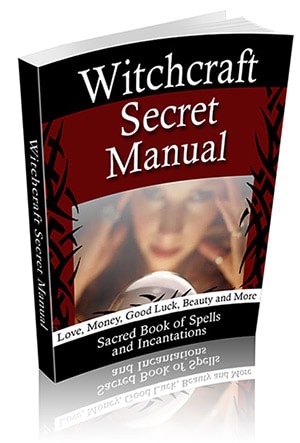Black Magic is real for those who believe in it. It cannot have any impact on those that do not. The subject of black magic activity must believe in it or there can be no effect. Since we tend to relate back to these hidden beliefs in religion and magic when something occurs that we cannot understand, a surprisingly large number of people in the right circumstances believe, so it becomes real.
Many years ago there was a more widespread belief in both God and Magic than there is today.
As the years went by, this belief in God and Magic was replaced by an increasing “logical” belief, that relied more on technology.
However, This belief in things mystical never really went away. It was left buried under layers of belief in the new religion of science.
These beliefs breakthrough in times of uncertainty and stress.
History of Black Magic
The origins of black magic go back into prehistory.
Its origin was the attempts of early man to explain events that they did not understand.
In an attempt to negate the effect of these unknowable aspects of their life, they devised rituals that they hoped would protect them.
Gradually there arose a new specialist called a shaman who took on the role of protecting the community.
This role gave them a privileged position, and in an effort to maintained those privileges, they gradually extended the role to include healing and the creation of charms, potions, and spells.
These wise women who had accumulated knowledge passed this folklore down through the generations, and these wise women became known as witches.
They were an integral part of early society, certainly not seen as evil, more like a cross between a doctor and a priest.
Then Christianity came along and the Christian establishment, fearful of the competition of witches, began to link them with Satan, and the persecution began.
Witchcraft
A man was still uneducated and when things occurred that they did not understand, like a crop failure, sickness, and any other unexplained event, they began to blame the local wise woman or witch (the church would not discourage this of course).
Witches, who tended to live on the edge of society made great scapegoats for anything bad that happened.
This is where the witch began to be associated with bad events, instead of being seen as a wise protector like before.
Magic became Black Magic and was connected with evil.
For hundreds of years, Christianity gave witches a hard time, persecuting and killing them.
It was only when society began to be more enlightened and realized that pestilence, plague, and the like were natural events did the laws change which stopped the persecution.
Naturally afraid for their safety witches remained in the shadows, practicing their folk remedies and using their knowledge of herbs and potions, to a community that still believed in them, but were split in allegiance between the church teachings and the traditional cures and activities of the witches.
In more recent times witches have been recognized more as an alternative source of medical assistance, used when scientific medicine seemed unable to help.
Spells and potions were seen as a kind of alternative medicine, and with the threat of persecution all nut has gone, other people began to be attracted to the apparent status of the witch, and charlatans and crooks began to sell cures and spells (like love spells) to make a profit.
These people did not possess the detailed folk knowledge that true witches had inherited.
There are several ways how you can learn Witchcraft.
If you’re serious, the best way how to learn it is to take online education that will teach you everything from scratch and step by step.
Black Magic in Culture
As people became more literate and fiction became more widespread, so the Wich was a useful fictional character that could be used as the antagonist in literary plots.
The witch began to be confused with other concepts, like Satanism, and other anti-social activities.
So far I have been talking very much about the development of black magic in a Western European Culture.
The parallel course has occurred in many parts of the world, where traditional healers have come into conflict with an expanding church and become cast in the role of evil.
It could be said that the concept of evil black magic is very much the creation of the jealousy of the church.
If we look at the current definition of Black Magic we see:
“Black magic has traditionally referred to the use of supernatural powers or magic for evil and selfish purposes.“
This is something very different from the original magicians in society, the Shaman, who was there to protect the community from the unknown.
The church encouraged a culture to grow that saw the magician/witch/ as someone who is involved in evil activities, selfish activities.
Satanism
We now come to another falsehood promoted by the church.
The current definition of Satanism is:
“The worship of Satan, typically involving a travesty of Christian symbols and practices.“
Because of the influence of the church witches were seen as Satanists, worshiping the devil and engaged in corrupt deviations from church rituals.
This is just not the case. Witchcraft was a Pre-Christian practice that was in Europe before Christianity ever came along.
True Magic cannot be based on activities that opposed the church when the church came along after witchcraft.
Satanism, by definition, is a reaction to Christianity. Without the “fallen Angel” who is Satan (a Christian concept), there can be no worship of Satan.
This is not what witches today believe in or practice, despite elements of the church continuing to promote this idea.
Black Magic and Religion
First, there was magic.
It consisted of a number of rituals and practices designed to explain and counter phenomena that were not understood.
Then along came Christianity and suddenly the magic was evil (it was seen as black).
It got through the Christian persecution remaining hidden but still present.
After laws were enacted that stopped the church persecution it gradually came back into public view.
But it retained the appearance of something evil that the Christians had encouraged.
In reality, modern Witches, or Wickens, are just another religious movement that shares the same ethical foundation as other religions in the “Golden Rule.”
More progressive Christians will now include Wicka within Multi-Faith meetings.
Multi-Faith groups in the UK will typically include Wicka in their participants. Yes, there are still some conservative Christians who have not yet shaken off the old views.
It was not the only religion that had an impact on magic
If a male witch is called a wizard, how is it that wizards are frequently seen as good, and they suffered very little persecution?
They were seen as wise men who were knowledgeable about certain phenomena.
A witch, however, was persecuted and seen as evil. A lot of this is the difference in the power balance between the sexes.
A woman living on the edge of society is called a witch and persecuted easily because as a woman, her status is so low.
A wizard is seen as an eccentric at worst, and because of the higher status of the man, they were rarely persecuted.
The reality of Black or White Magic
If we go back to the Roman Empire we have a situation where ALL magic was rejected by Rome.
As the Romans spread across Europe they brought this negative view of magic.
In the renaissance, attitudes changed and the attitude of the people began to change when it came to magic.
Yes, the Church still officially rejected it, but the general population began to embrace magic again.
This is where the magic began to divide into two strands.
The acceptable white magic, and the unacceptable black magic.
The black magic was the part with apparent connections to opposing religion, and white magic was what was left.
The renaissance had brought with it a reduction in fear of the old Pre-Christian pagan past.
This is where the definition of Black Magic that I gave earlier was developed.
At the same time, any magic that could not be described as “use of supernatural powers or magic for evil and selfish purposes” became White Magic.
Conclusion
So going back to the original question “Is Black Magic Real?” we have to say that Black Magic is real.
Magic is and always has been a way of relating to concepts that are not understood. It is an ancient practice that came before science, and from which science evolved.
Many Magical events that at the time were seen as supernatural have now been verified by science and they no longer sit in the realm of things that cannot be explained (Magic) and have become explainable (Science).
If science concerns things that can be explained, what remains and cannot be explained must be magic.
If utilizing those magic concepts for selfish gain, according to our definition, then that is black magic.
It follows that if we believe in science (that which can be explained), then we have to acknowledge that some things cannot be explained (which we describe as magic).
If we stick to our definition of Black Magic, then we have to accept that black magic does exist in exactly the same way we acknowledge science.



